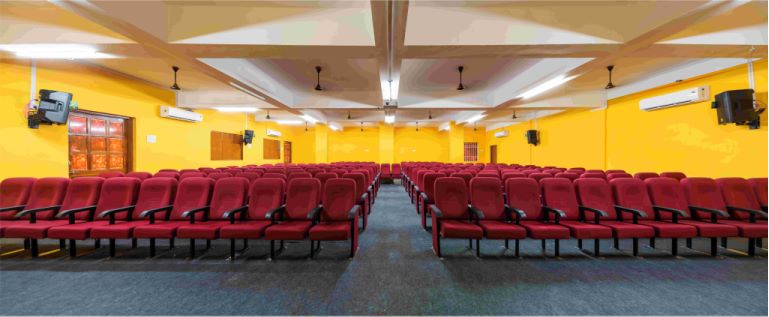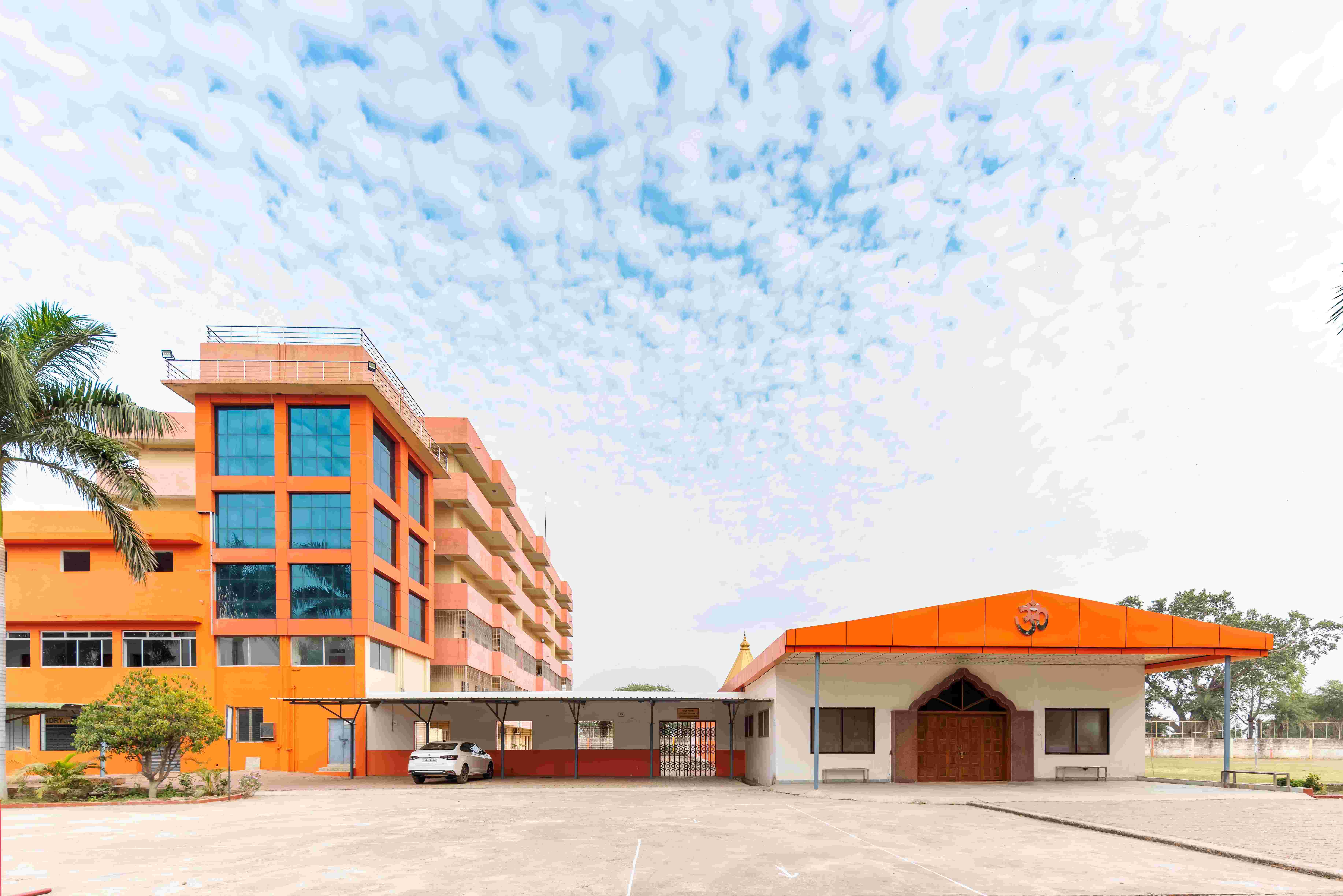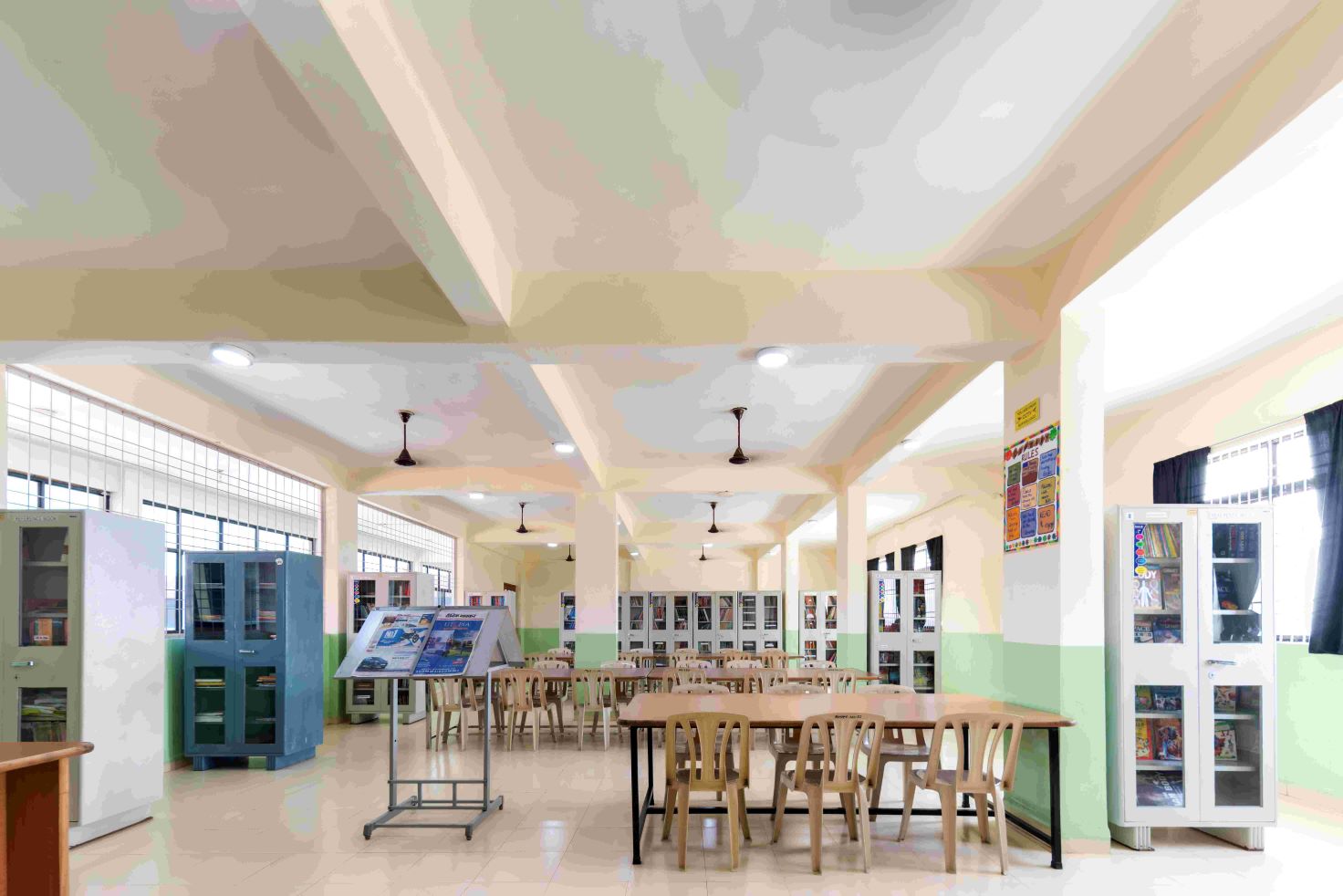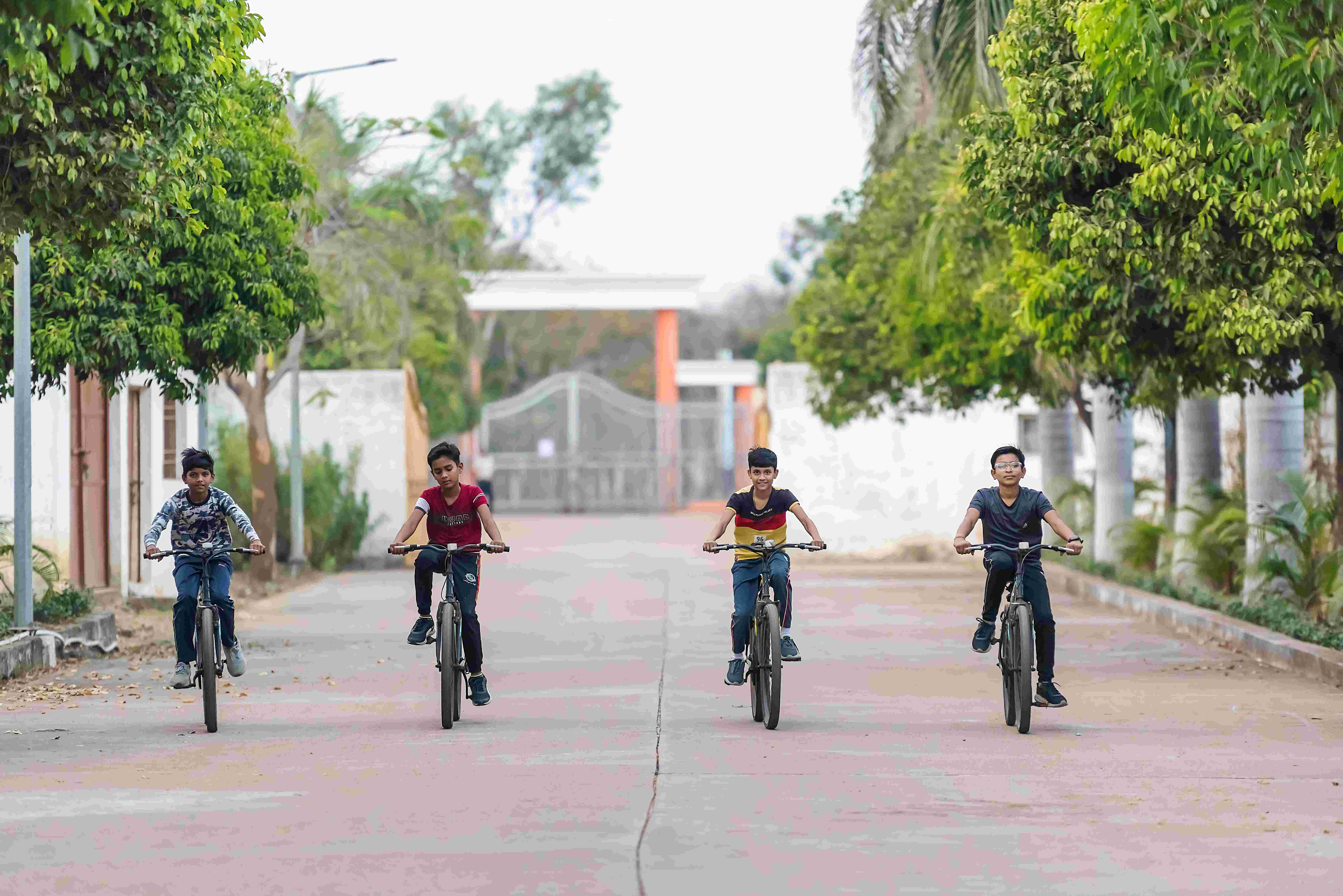Blog
Advantages of a Boarding School
The Benefits of a Holistic Education: How The Great India School Prepares Students for Success
The Importance of Outdoor Learning: How The Great India School Uses its Multi-Sports Arena to Enhance Learning
Understanding the Montessori Method: How The Great India School Incorporates Montessori Principles into Its Curriculum
The Benefits of a Holistic Education: How The Great India School Prepares Students for Success
Preparing India's Future: Why Next Generation Skills are a Must-Have for Today's Kids
Advantages of a Boarding School 2023-02-28 16:10:55
- Academics: Boarding schools often have a strong academic reputation, with experienced teachers and resources that can help students achieve their full potential.
- Structure: Boarding schools provide a structured environment that can help students develop time-management and organisational skills.
- Independence: Living in a boarding school allows students to develop independence and self-reliance, as they are responsible for their own daily routines and chores.
- Diversity: Boarding schools often have a diverse student body, which can expose students to different cultures, perspectives, and ideas.
- Extracurricular activities: Boarding schools typically offer a wide range of extracurricular activities, such as sports, music, theatre, and clubs, which can help students develop new skills and interests.
- Networking: Boarding schools provide students with the opportunity to build a network of friends and connections that can last a lifetime.
- Focus on student well-being: Many boarding schools place a strong emphasis on student well-being, providing support and resources to help students manage stress, anxiety, and other mental health issues.
- Preparation for college and beyond: Boarding schools can provide students with the skills and experiences they need to succeed in college and beyond, such as critical thinking, problem-solving, and collaboration.
-School Blog-
The Benefits of a Holistic Education: How The Great India School Prepares Students for Success 2023-02-28 16:44:38
At The Great India School, we believe that a holistic education is essential for preparing students for success in life. Our approach to education emphasizes not just academic excellence, but also the development of character, values, and life skills. This is why we have developed a unique curriculum that includes not just traditional subjects, but also extracurricular activities, community service, and exposure to different cultures.
One of the ways in which we provide a holistic education is through our organic farms. We believe that it is important for students to have a connection with nature and to understand the importance of sustainable living. Through our organic farms, students learn about the importance of healthy and sustainable food choices, as well as the hard work and dedication that goes into growing and maintaining a farm.
In addition to our organic farms, we also offer a wide range of extracurricular activities, including sports, music, art, and drama. These activities not only help students develop new skills and interests, but also provide opportunities for leadership, teamwork, and personal growth. We believe that these experiences are just as important as academic learning, and help prepare students for success in all aspects of life.
Overall, a holistic education provides many benefits for students, including a deeper understanding of themselves and the world around them, a strong sense of purpose and direction, and the skills and confidence to succeed in any field they choose. At The Great India School, we are committed to providing this kind of education to our students, and we believe that it is one of the keys to their future success.
-School Blog-
The Importance of Outdoor Learning: How The Great India School Uses its Multi-Sports Arena to Enhance Learning 2023-02-28 16:44:59
At The Great India School, we believe that learning is not just confined to the four walls of a classroom. In fact, we believe that outdoor learning can be just as effective, if not more so, than traditional indoor learning. This is why we have invested in a seven-acre multi-sports arena, complete with a stadium that can seat 4000 people, a Semi Olympic swimming pool, cycling lane, yoga studio, meditation hall, and a 30,000 square feet indoor sports complex.
Research has shown that outdoor learning can help to enhance learning in a number of ways. For example, it can help to improve concentration, boost creativity, and increase problem-solving skills. It can also help to develop social skills and encourage teamwork, which are both essential for success in the real world.
Our multi-sports arena is the perfect place for students to develop these skills. Whether they are swimming laps in the pool, playing a game of football on the field, or practicing their yoga poses in the studio, they are constantly learning and growing. We also use the arena to hold sports events, which are great for fostering a sense of community and school spirit.
In addition to the physical benefits, our outdoor learning environment has also been shown to have a positive impact on mental health. Studies have found that spending time in nature can reduce stress and anxiety, improve mood, and boost overall well-being. Our organic farms and gardens provide a unique opportunity for students to connect with nature and learn about sustainable agriculture practices.
At The Great India School, we believe that outdoor learning is an essential component of a holistic education. We are proud to offer our students a state-of-the-art multi-sports arena and organic farms, and we look forward to continuing to use these resources to enhance learning and promote overall well-being.
-School Blog-
Understanding the Montessori Method: How The Great India School Incorporates Montessori Principles into Its Curriculum 2023-02-28 16:45:48
The Montessori method of education is an innovative approach to learning that emphasizes independent learning, hands-on experience, and active participation. At The Great India School, we believe that a Montessori education can provide our students with the tools and skills they need to succeed in life.
The Montessori approach is based on the idea that children learn best when they are given the freedom to explore and discover on their own. Our curriculum is designed to encourage this type of independent learning, with a focus on practical skills and problem-solving. We believe that this approach helps to foster creativity, critical thinking, and a love of learning that will last a lifetime.
At The Great India School, we incorporate Montessori principles into our curriculum in a number of ways. Our classrooms are designed to be open, inviting spaces that allow for exploration and discovery. We also use a wide range of hands-on materials and activities to help our students learn by doing.
In addition, we encourage our students to take responsibility for their own learning by setting goals and monitoring their progress. This approach helps to build self-confidence, independence, and a sense of personal responsibility that will serve our students well in all areas of their lives.
One unique aspect of The Great India School is our organic farms. Our Montessori program includes hands-on gardening experiences for our students. By working in our gardens, students learn about agriculture, ecology, and the importance of sustainability. This gives them a real-world connection to the food they eat, and an understanding of the process by which it is grown.
In conclusion, we believe that the Montessori approach is a powerful way to prepare our students for success. By providing an environment that encourages independent learning, hands-on experience, and a focus on practical skills, we are helping to build the creative, critical thinkers and lifelong learners of tomorrow.
-School Blog-
The Benefits of a Holistic Education: How The Great India School Prepares Students for Success 2023-02-28 16:46:24
At The Great India School, we believe that education should not be limited to academics alone. We understand that in order to prepare our students for success in the real world, we must provide them with a well-rounded education that nurtures their physical, emotional, and social well-being as well.
Our approach to education is holistic and focuses on character development, personality building, and value education. We believe that this is essential in order to prepare our students to be successful and responsible members of society.
One way we achieve this is through our multi-sports arena, which serves as an outdoor classroom for our students. Our students are encouraged to participate in a wide range of sports activities, from swimming to cycling to yoga, which helps them to develop physical strength, improve their coordination and balance, and maintain a healthy lifestyle.
We also understand the importance of cultural awareness and global education. Our students are exposed to various cultures, which prepares them to become responsible global citizens. They are encouraged to participate in activities that help them understand and appreciate different cultures and traditions, making them more open-minded and respectful of diversity.
Incorporating a holistic approach to education, The Great India School helps to prepare our students for success in all aspects of life. With a well-rounded education, our students are better equipped to navigate the challenges of the world and contribute positively to society.
-School Blog-
Preparing India's Future: Why Next Generation Skills are a Must-Have for Today's Kids 2023-04-03 10:52:37
As the world becomes increasingly digital, it is becoming more and more important for children to learn next generation skills that will help them thrive in the workforce of the future. In India, where the economy is rapidly evolving and new industries are emerging, it is essential for young people to develop skills in areas like coding, robotics, entrepreneurship, communications, and financial literacy.
Coding is one of the most important next generation skills that children should learn. In today's world, coding is becoming a fundamental skill like reading and writing, and it is essential for children to be able to understand how technology works. By learning coding, children can develop problem-solving skills and gain an understanding of how to use technology to solve real-world problems.
Robotics is another critical area of next generation skills that is becoming increasingly important. Robotics is an interdisciplinary field that combines computer science, engineering, and mathematics to create intelligent machines that can perform tasks on their own. By learning robotics, children can develop skills in problem-solving, critical thinking, and creativity.
Entrepreneurship is also a vital area for children to learn about. As the Indian economy evolves, entrepreneurship is becoming increasingly important, and it is essential for children to understand how to start and run a successful business. By learning about entrepreneurship, children can develop skills in leadership, communication, and innovation.
Communications is another important area for children to focus on. In today's world, communication skills are essential for success in any field. By learning how to communicate effectively, children can develop skills in public speaking, writing, and listening.
Finally, financial literacy is a critical area for children to learn about. By learning about financial literacy, children can develop skills in budgeting, saving, investing, and financial planning. These skills are essential for success in today's economy, where financial decisions can have a significant impact on a person's future.
In conclusion, next generation skills are becoming increasingly important for children in India. By learning skills in areas like coding, robotics, entrepreneurship, communications, and financial literacy, children can develop the skills they need to succeed in the workforce of the future. As the economy evolves and new industries emerge, it is essential for young people to be prepared with the skills they need to succeed.
-Vedika Online-
- Academics: Boarding schools often have a strong academic reputation, with experienced teachers and resources that can help students achieve their full potential.
- Structure: Boarding schools provide a structured environment that can help students develop time-management and organisational skills.
- Independence: Living in a boarding school allows students to develop independence and self-reliance, as they are responsible for their own daily routines and chores.
- Diversity: Boarding schools often have a diverse student body, which can expose students to different cultures, perspectives, and ideas.
- Extracurricular activities: Boarding schools typically offer a wide range of extracurricular activities, such as sports, music, theatre, and clubs, which can help students develop new skills and interests.
- Networking: Boarding schools provide students with the opportunity to build a network of friends and connections that can last a lifetime.
- Focus on student well-being: Many boarding schools place a strong emphasis on student well-being, providing support and resources to help students manage stress, anxiety, and other mental health issues.
- Preparation for college and beyond: Boarding schools can provide students with the skills and experiences they need to succeed in college and beyond, such as critical thinking, problem-solving, and collaboration.
At The Great India School, we believe that a holistic education is essential for preparing students for success in life. Our approach to education emphasizes not just academic excellence, but also the development of character, values, and life skills. This is why we have developed a unique curriculum that includes not just traditional subjects, but also extracurricular activities, community service, and exposure to different cultures.
One of the ways in which we provide a holistic education is through our organic farms. We believe that it is important for students to have a connection with nature and to understand the importance of sustainable living. Through our organic farms, students learn about the importance of healthy and sustainable food choices, as well as the hard work and dedication that goes into growing and maintaining a farm.
In addition to our organic farms, we also offer a wide range of extracurricular activities, including sports, music, art, and drama. These activities not only help students develop new skills and interests, but also provide opportunities for leadership, teamwork, and personal growth. We believe that these experiences are just as important as academic learning, and help prepare students for success in all aspects of life.
Overall, a holistic education provides many benefits for students, including a deeper understanding of themselves and the world around them, a strong sense of purpose and direction, and the skills and confidence to succeed in any field they choose. At The Great India School, we are committed to providing this kind of education to our students, and we believe that it is one of the keys to their future success.
At The Great India School, we believe that learning is not just confined to the four walls of a classroom. In fact, we believe that outdoor learning can be just as effective, if not more so, than traditional indoor learning. This is why we have invested in a seven-acre multi-sports arena, complete with a stadium that can seat 4000 people, a Semi Olympic swimming pool, cycling lane, yoga studio, meditation hall, and a 30,000 square feet indoor sports complex.
Research has shown that outdoor learning can help to enhance learning in a number of ways. For example, it can help to improve concentration, boost creativity, and increase problem-solving skills. It can also help to develop social skills and encourage teamwork, which are both essential for success in the real world.
Our multi-sports arena is the perfect place for students to develop these skills. Whether they are swimming laps in the pool, playing a game of football on the field, or practicing their yoga poses in the studio, they are constantly learning and growing. We also use the arena to hold sports events, which are great for fostering a sense of community and school spirit.
In addition to the physical benefits, our outdoor learning environment has also been shown to have a positive impact on mental health. Studies have found that spending time in nature can reduce stress and anxiety, improve mood, and boost overall well-being. Our organic farms and gardens provide a unique opportunity for students to connect with nature and learn about sustainable agriculture practices.
At The Great India School, we believe that outdoor learning is an essential component of a holistic education. We are proud to offer our students a state-of-the-art multi-sports arena and organic farms, and we look forward to continuing to use these resources to enhance learning and promote overall well-being.
The Montessori method of education is an innovative approach to learning that emphasizes independent learning, hands-on experience, and active participation. At The Great India School, we believe that a Montessori education can provide our students with the tools and skills they need to succeed in life.
The Montessori approach is based on the idea that children learn best when they are given the freedom to explore and discover on their own. Our curriculum is designed to encourage this type of independent learning, with a focus on practical skills and problem-solving. We believe that this approach helps to foster creativity, critical thinking, and a love of learning that will last a lifetime.
At The Great India School, we incorporate Montessori principles into our curriculum in a number of ways. Our classrooms are designed to be open, inviting spaces that allow for exploration and discovery. We also use a wide range of hands-on materials and activities to help our students learn by doing.
In addition, we encourage our students to take responsibility for their own learning by setting goals and monitoring their progress. This approach helps to build self-confidence, independence, and a sense of personal responsibility that will serve our students well in all areas of their lives.
One unique aspect of The Great India School is our organic farms. Our Montessori program includes hands-on gardening experiences for our students. By working in our gardens, students learn about agriculture, ecology, and the importance of sustainability. This gives them a real-world connection to the food they eat, and an understanding of the process by which it is grown.
In conclusion, we believe that the Montessori approach is a powerful way to prepare our students for success. By providing an environment that encourages independent learning, hands-on experience, and a focus on practical skills, we are helping to build the creative, critical thinkers and lifelong learners of tomorrow.
At The Great India School, we believe that education should not be limited to academics alone. We understand that in order to prepare our students for success in the real world, we must provide them with a well-rounded education that nurtures their physical, emotional, and social well-being as well.
Our approach to education is holistic and focuses on character development, personality building, and value education. We believe that this is essential in order to prepare our students to be successful and responsible members of society.
One way we achieve this is through our multi-sports arena, which serves as an outdoor classroom for our students. Our students are encouraged to participate in a wide range of sports activities, from swimming to cycling to yoga, which helps them to develop physical strength, improve their coordination and balance, and maintain a healthy lifestyle.
We also understand the importance of cultural awareness and global education. Our students are exposed to various cultures, which prepares them to become responsible global citizens. They are encouraged to participate in activities that help them understand and appreciate different cultures and traditions, making them more open-minded and respectful of diversity.
Incorporating a holistic approach to education, The Great India School helps to prepare our students for success in all aspects of life. With a well-rounded education, our students are better equipped to navigate the challenges of the world and contribute positively to society.
As the world becomes increasingly digital, it is becoming more and more important for children to learn next generation skills that will help them thrive in the workforce of the future. In India, where the economy is rapidly evolving and new industries are emerging, it is essential for young people to develop skills in areas like coding, robotics, entrepreneurship, communications, and financial literacy.
Coding is one of the most important next generation skills that children should learn. In today's world, coding is becoming a fundamental skill like reading and writing, and it is essential for children to be able to understand how technology works. By learning coding, children can develop problem-solving skills and gain an understanding of how to use technology to solve real-world problems.
Robotics is another critical area of next generation skills that is becoming increasingly important. Robotics is an interdisciplinary field that combines computer science, engineering, and mathematics to create intelligent machines that can perform tasks on their own. By learning robotics, children can develop skills in problem-solving, critical thinking, and creativity.
Entrepreneurship is also a vital area for children to learn about. As the Indian economy evolves, entrepreneurship is becoming increasingly important, and it is essential for children to understand how to start and run a successful business. By learning about entrepreneurship, children can develop skills in leadership, communication, and innovation.
Communications is another important area for children to focus on. In today's world, communication skills are essential for success in any field. By learning how to communicate effectively, children can develop skills in public speaking, writing, and listening.
Finally, financial literacy is a critical area for children to learn about. By learning about financial literacy, children can develop skills in budgeting, saving, investing, and financial planning. These skills are essential for success in today's economy, where financial decisions can have a significant impact on a person's future.
In conclusion, next generation skills are becoming increasingly important for children in India. By learning skills in areas like coding, robotics, entrepreneurship, communications, and financial literacy, children can develop the skills they need to succeed in the workforce of the future. As the economy evolves and new industries emerge, it is essential for young people to be prepared with the skills they need to succeed.







